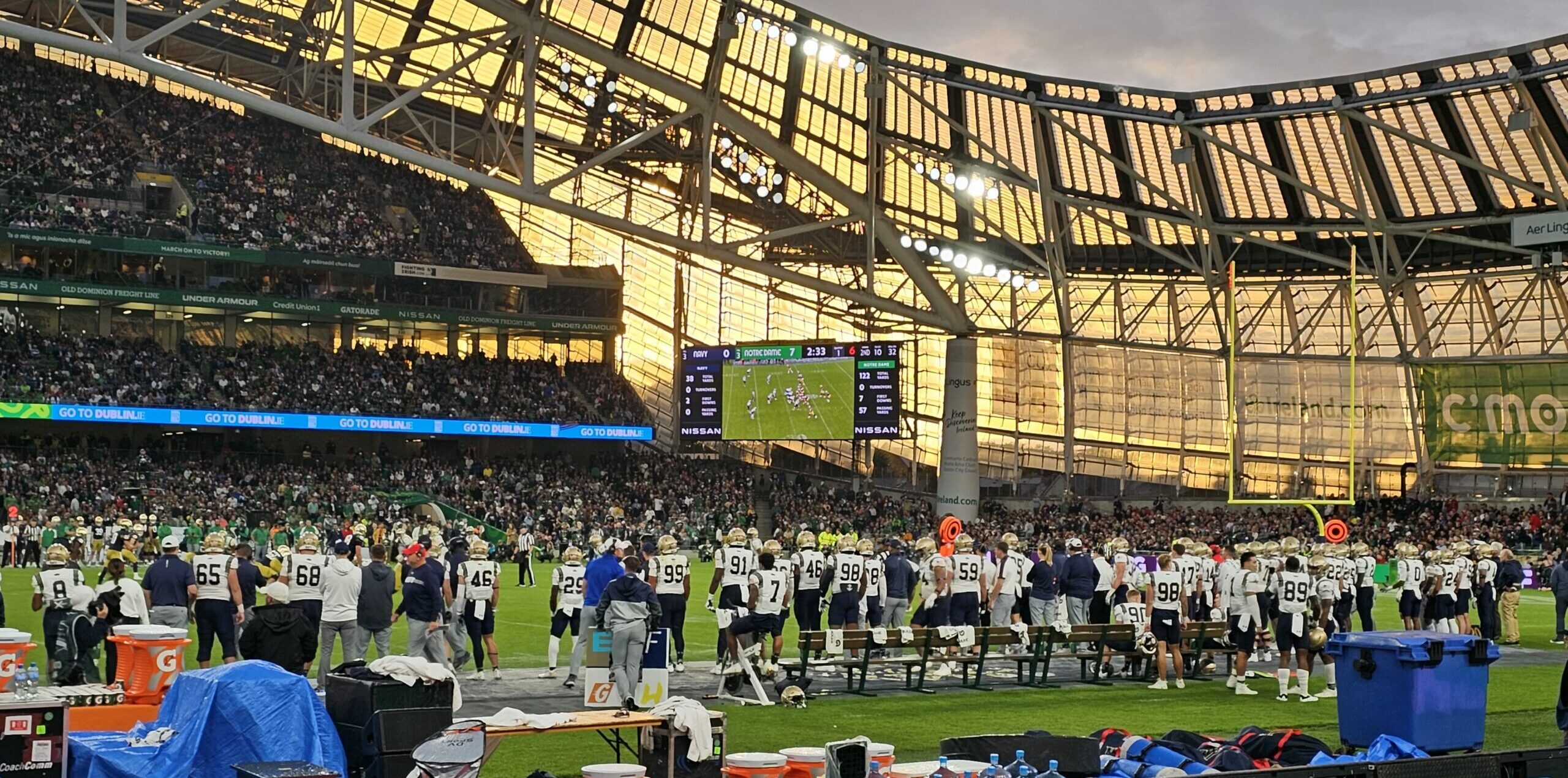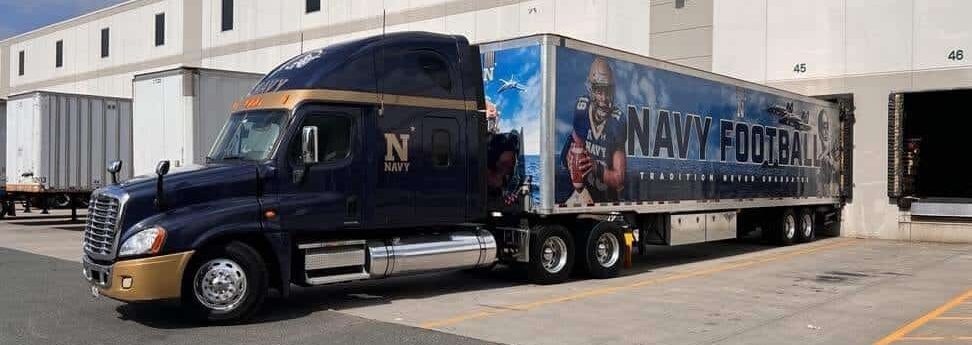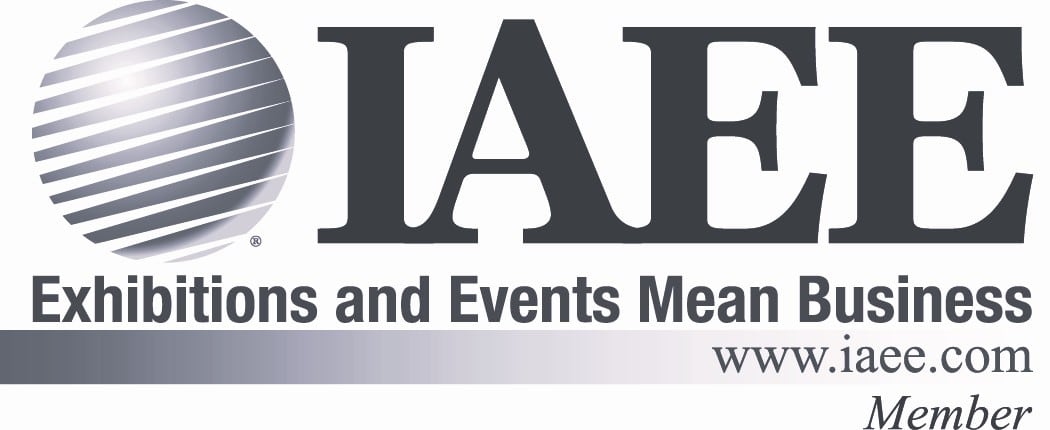
The Aer Lingus College Football Classic 2023, featuring the University of Notre Dame Fighting Irish and the Navy Midshipmen, took place at the Aviva Stadium in Dublin, Ireland. This sold-out event attracted a record-breaking 39,176 American fans who travelled internationally, marking it as the largest movement of Americans abroad for a single sporting event. This annual spectacle is not just a cultural and sporting highlight but also a significant logistical endeavour, given the immense scale of cargo transportation involved.
Each team transported over 10,000 kilograms of cargo via chartered flights, encompassing essential supplies such as:
- Nutrition supplies to meet strict dietary requirements.
- Medical equipment for the health and recovery of players.
- Protective gear including padding and helmets.
- Audio-visual and analytical equipment to aid game preparation.
- Personal baggage for players and staff.
- Band and cheerleader equipment, vital for the spectacle and team spirit.

Logistical Challenges
Transporting this scale of cargo, coupled with tight schedules and high stakes, posed several challenges:
i. Coordination Across Multiple Teams and Stakeholders
- Notre Dame and Navy each had distinct logistical needs, from specialized medical supplies to unique band equipment.
- Close coordination with airlines, customs, and ground transportation teams in both the U.S. and Ireland was critical to ensure seamless transit.
ii. Time-Critical Operations
- The cargo had to be transported to Dublin in time for pre-game activities, rehearsals, and training sessions.
- Post-game, the equipment needed to be packed and shipped back within hours of the final whistle to maintain Notre Dame’s rigorous NCAA schedule.
iii. Customs and Regulatory Compliance
- Moving such a large quantity of equipment internationally required meticulous planning to comply with customs regulations, ensuring no delays during transit.
Complexity of Cargo
- Handling fragile and high-value items like analytical equipment and AV setups required specialized packaging and care.
- The sheer diversity of cargo, from helmets to musical instruments, demanded expertise in sports logistics.
Crowd-Driven Pressure
- With record-breaking numbers of fans traveling, any delays or mishaps could disrupt the overall experience for the teams and attendees.
Interflow Logistics’ Role
Interflow Logistics, renowned for its expertise in sports logistics, successfully orchestrated this complex operation. Their approach involved:
i. Pre-Event Planning
- Early engagement with team representatives to understand unique requirements.
- Development of a robust logistics plan, integrating air freight schedules, ground handling, and customs clearance.
ii. Efficient Transportation Solutions
- Use of chartered flights ensured direct and controlled cargo movement.
- Streamlined processes for loading and unloading at airports in the U.S. and Dublin.
iii. Real-Time Monitoring and Flexibility
- Deployment of on-ground logistics experts to oversee operations.
- Ability to adapt to last-minute changes or challenges.
iv. Rapid Turnaround Post-Game
- Teams of logistics professionals worked through the night to dismantle, pack, and load equipment after the game.
- Notre Dame’s equipment was back in the U.S. the next day, ready for practice sessions, exemplifying precision and efficiency.
Outcome
Interflow Logistics received high praise from both Notre Dame and Navy management for their flawless execution. The logistical operations ensured that:
- All equipment arrived on time and in pristine condition.
- Fans, teams, and organizers could focus on the game without logistical concerns.
- Notre Dame’s NCAA schedule remained unaffected by the international trip.
- The event was a resounding success, showcasing not only the passion for college football but also the critical role of expert logistics in delivering such a large-scale international event.
continue reading




